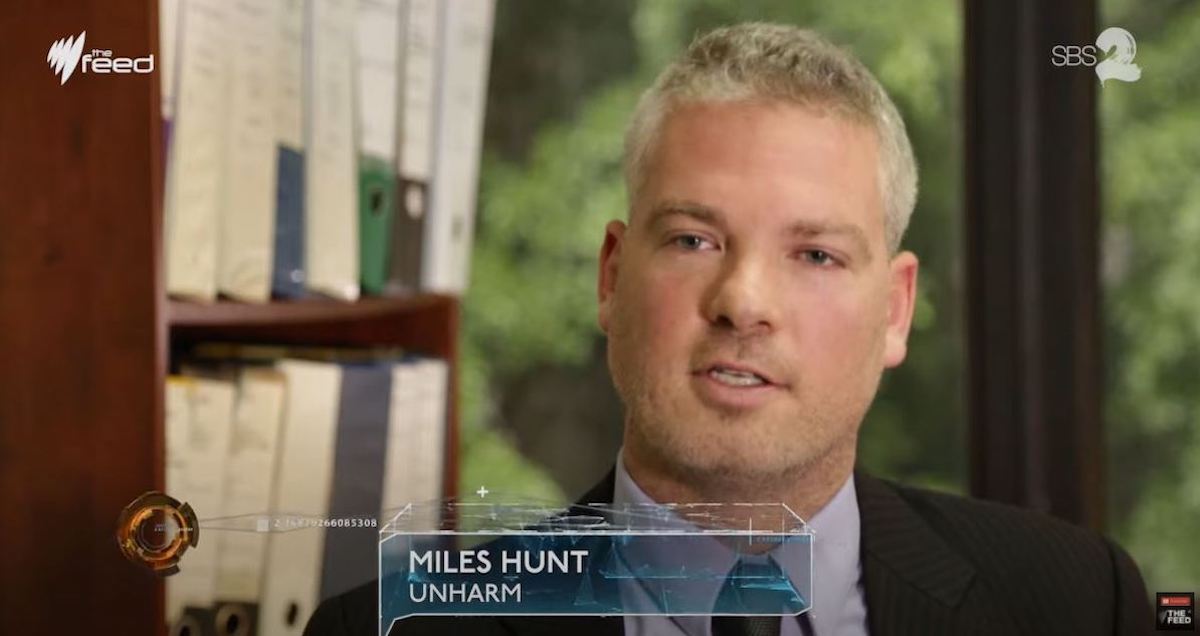
“If you’re in a position where you can affect change or tell your story, then you have an even greater responsibility to do so.“
Lawyer says those in power have a greater responsibility to be honest about their drug use
Miles Hunt
11.6.21
As a lawyer, Miles Hunt believes that his responsibility isn’t just about upholding existing laws – it’s also about fighting for better ones. He sees how our current drug laws are causing more harm than good, which is why he is speaking up about his own drug use to break down the stigma and bring about change. This is Miles’ story.
I have always been open about my drug use with friends and family, but I officially ‘came out’ in 2014 with my face plastered across the front page of the Sydney Morning Herald. The headline read: Lawyer: ‘I’ve used drugs’. I had expected it to be around page ten as it was only a short piece where I talk about the drugs I’ve experienced – most – and the discriminatory practices of policing. Being on the front page though is something I hadn’t expected, so I contacted the journalist about doing a follow-up piece to explain why I was sharing my story. I didn’t want it to be this sensationalised media article.
I shared my story because talking about drug use lifts the lid on secrecy. The fact that people feel like they can’t talk about it is a direct result of criminalisation. It’s a brutal and harsh punishment when you consider that drug use has both positive and negative impacts. As a society, we need to appreciate and acknowledge both sides of the coin by talking about how drugs can be used without impacting other areas of life. The whole ‘drugs are bad’ rhetoric is providing a false foundation for our laws to be built upon.
My Mum thought the article would ruin my life. Yet, I’m still a lawyer today. I had my five-minutes of fame where I was called the ‘drug-taking-lawyer’ for a bit, but overall there were no issues with my job or my career that came from the article. There were people in my boss’ ear at the time saying the article would damage the reputation of the firm, but it didn’t. Fortunately, my boss was also my best friend at the time, but there was a point where I was concerned about the Law Society stripping me of my certification. I prepared a response about how I would respond if that happened, but nothing ever came of it. However, I’m not blind to the role that my privilege played in that outcome.
I like to think that I’m an honest and decent person, so I’ve always been upfront about my drug use. In saying that though, I’m also a white, middle class male who went to a private school and had every opportunity in life. It was easier for me to speak up about my drug use because while there were some concerns over my job at the time, I was never scared of being arrested. I’m aware that this level of privilege allows me to share my story with this confidence. While I wasn’t impacted negatively in any way, I can’t say that every person who shares their story will have the same good fortune. This is why I believe others in a similar position of privilege have more of a responsibility to speak up.
We need to leverage the power of doctors, barristers, and politicians to share their stories and support drug policy reform. As a lawyer, I am even more aware of my responsibility to speak up because being a lawyer isn’t just about upholding the existing laws – it’s about fighting for better ones. If you’re in a position where you can affect change or tell your story, then you have an even greater responsibility to do so. The more people that come forward and tell their story, the more people will hopefully be inspired to do the same.
Storytelling is what changes laws. People need to hear about positive relationships with drugs – whether that be for medicinal properties, recreational use, or pain management. There are many examples throughout history of humans using drugs in a responsible way that need to be told. Yes, we need to deal with the negative impacts, but it needs to be framed in an overall narrative that includes the good and the bad. As a society, we need to acknowledge both, because having an open and honest conversation is how we can begin to build better laws, have a better relationship with drugs, and have less people experiencing negative consequences as a result.
Image Credit:
SBS News – The Feed
Author:
Miles Hunt is a Sydney-based lawyer, founding member of Unharm and author of dystopian novel The Information Editor.
Sign up
Sign up for movement news and opportunities to get involved
We are building a movement to make drug use legal and safe in Australia so that everyone has a better chance to lead a healthy and happy life.